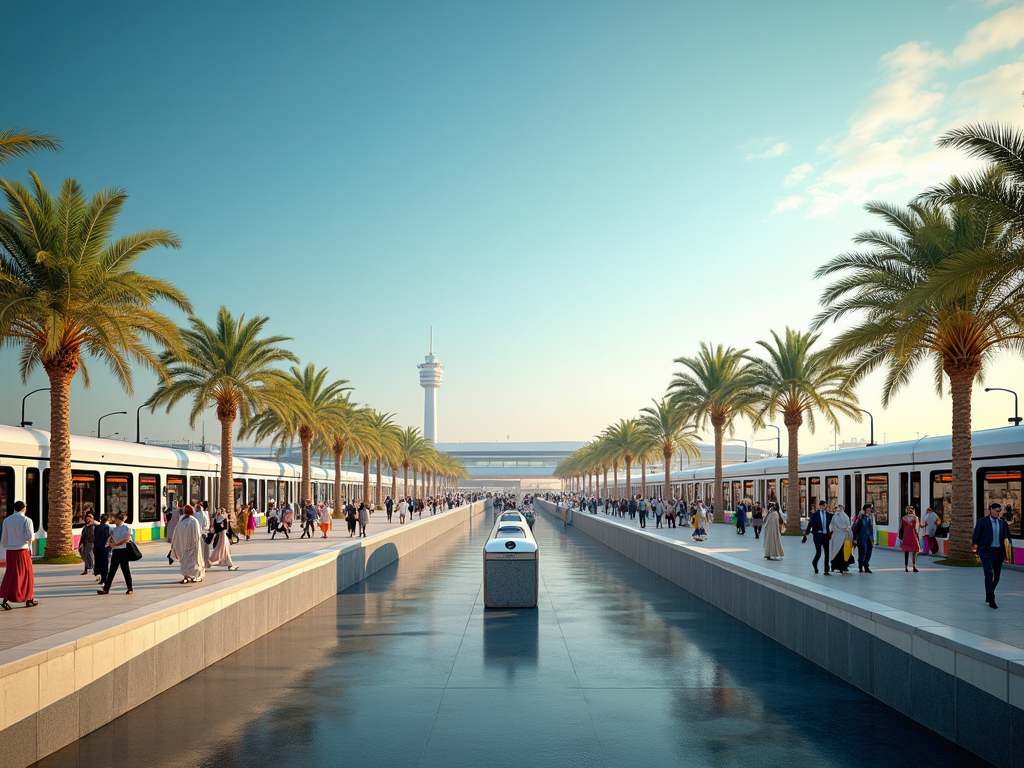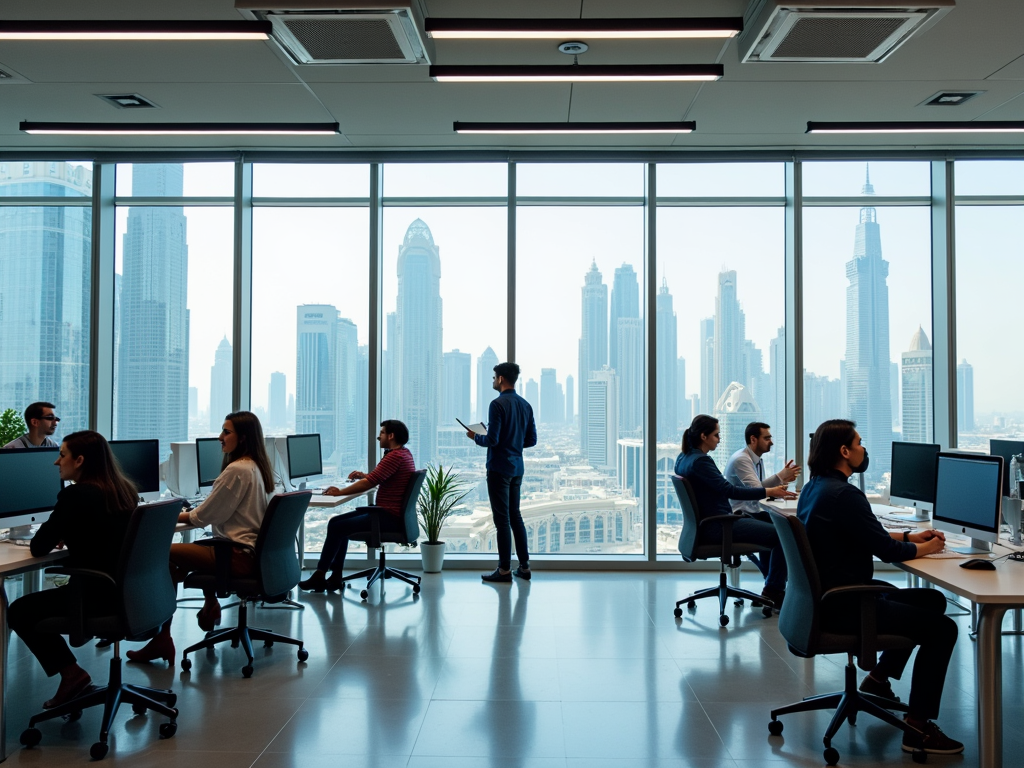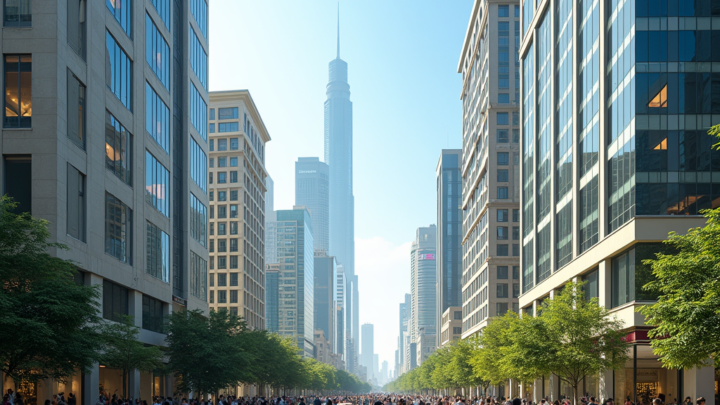Dubai has evolved into one of the world’s most dynamic business hubs, largely driven by its robust infrastructure. The city’s strategic location, modern facilities, and supportive government policies create an ideal landscape for new businesses. This article will explore how Dubai’s infrastructure—ranging from transport systems to communication networks—plays a vital role in fostering entrepreneurship and attracting international investments.
The Importance of Transportation Infrastructure

Transportation is a cornerstone of any thriving business ecosystem, and Dubai excels in this regard. With a comprehensive network of roads, bridges, and public transit, the city enables seamless movement for both goods and people. This accessibility enhances operational efficiency for new businesses while attracting a diverse workforce. The pivotal components of Dubai’s transportation infrastructure include:
- Dubai International Airport (DXB): One of the world’s busiest airports, it connects businesses to global markets.
- Dubai Metro: An efficient public transport system that reduces commute times and increases productivity.
- Well-maintained Road Networks: High-quality roads support smooth logistics and distribution.
- Ports and Freight Services: Jebel Ali Port is a major gateway for shipping, significantly aiding trade operations.
Such infrastructure not only spurs local entrepreneurship but also channels international business, making Dubai a favored investment destination.
Communication and Technology Infrastructure

In the digital age, communication and technology infrastructures are critical for business success. Dubai is renowned for its high-speed internet connections and advanced telecommunications networks. This framework supports a wide array of business operations, including e-commerce, remote work, and customer service functions. Some key features of Dubai’s communication infrastructure include:
- 5G Network Coverage: This next-level connectivity allows businesses to innovate and improve service delivery.
- Data Centers: Robust data capabilities for secure storage, management, and retrieval of information.
- Smart City Initiatives: These initiatives integrate technology in urban planning for improved quality of life and business efficiencies.
Such a technology-friendly environment inspires startups and tech firms to establish their roots in Dubai, allowing them to thrive in a competitive landscape.
Regulatory Support and Economic Zones
Alongside physical infrastructure, regulatory support plays a crucial role in promoting new businesses. Dubai boasts several free zones, each designed to cater to different industries, providing tax breaks and 100% foreign ownership. This regulatory framework encourages international firms to set up local operations. Critical components of this supportive regulatory landscape include:
- 100% Ownership Rights: Non-residents can fully own their businesses without a local partner.
- No Import/Export Duties: Free zone businesses may avoid tariffs on goods.
- Quick Business Setup: Streamlined registration processes reduce startup friction.
- Tax Incentives: Various tax exemptions for foreign businesses support financial viability.
These elements create a vibrant entrepreneurial climate, attracting diverse sectors from technology to manufacturing.
Cultural and Social Infrastructure
Dubai’s cultural and social infrastructure further complements its business-friendly environment. The city’s cosmopolitan character and multicultural workforce create a fertile ground for creativity and innovation. New businesses stand to benefit from this diverse cultural milieu in several ways:
- Networking Opportunities: Events and gatherings facilitate connections across industries.
- Access to Talent: A diverse population provides a vast pool of skilled labor.
- Supportive Community: Local business networks offer guidance and resources for emerging enterprises.
This cultural dimension helps businesses not only survive but thrive in an ever-evolving market.
Conclusion
In conclusion, the significance of Dubai’s infrastructure in fostering new businesses cannot be overstated. The combination of advanced transportation systems, cutting-edge communication technology, supportive regulations, and a vibrant cultural scene makes it an attractive destination for entrepreneurs. As Dubai continues to invest in and upgrade its infrastructure, the potential for new businesses to flourish will only increase, reinforcing the city’s status as a global business hub.
Frequently Asked Questions
1. What are the main advantages of starting a business in Dubai?
The main advantages include tax exemptions, a strategic location for global trade, a diverse workforce, and investment-friendly regulations.
2. How does Dubai’s transportation infrastructure impact new businesses?
Dubai’s transportation infrastructure enhances logistics, reduces operational costs, and facilitates better access to markets and talent.
3. What are free zones in Dubai?
Free zones are designated areas where businesses can operate with benefits like 100% ownership, tax exemptions, and simplified regulations.
4. How does technology infrastructure support new businesses in Dubai?
High-speed internet, advanced telecommunications, and smart city initiatives provide the necessary tools for businesses to grow and innovate.
5. Is it easy to set up a business in Dubai?
Yes, setting up a business in Dubai is relatively straightforward thanks to streamlined processes and supportive regulations, especially in free zones.



